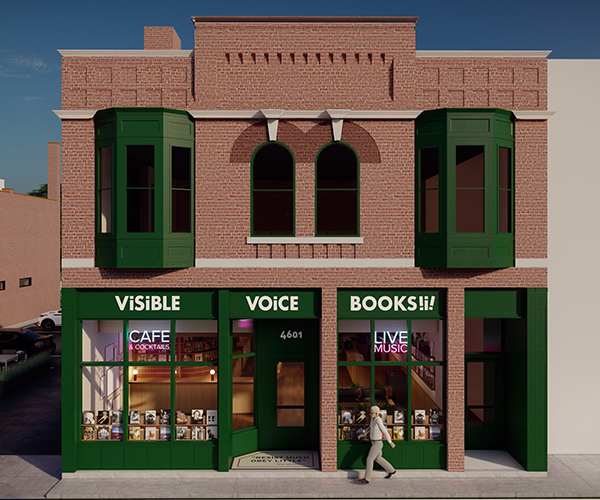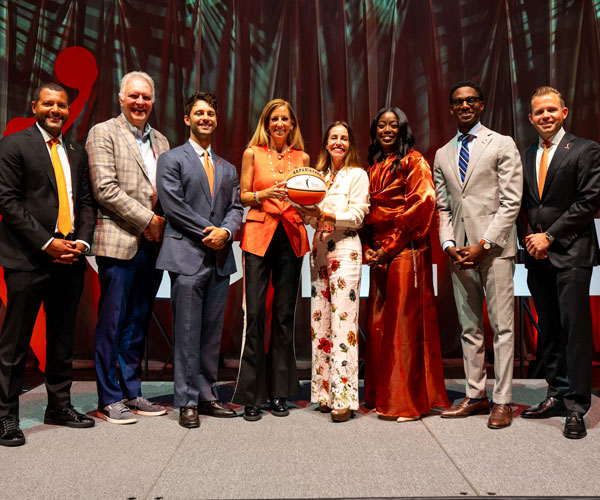I have a connective tissue disorder called Marfan syndrome. It’s hereditary. It’s why I’m 6 feet 2 inches tall. It’s why I’m so skinny.
But the major issue is that my aorta — the main artery that leads away from your heart — can grow into an aneurysm and tear. It’s what caused my mother to die instantly in September 2000.
After that, I lived in constant fear. My husband, Jason, and I once went to visit his grandparents in Wisconsin and stayed at this fishermen’s hotel. The place didn’t have a phone. I remember thinking, Oh my God. What if something happens to me? We decided then that we couldn’t live this way and scheduled an elective surgery for Sept. 19, 2006. The doctors would replace a piece of my aorta with a man-made tube. It’s a complicated procedure.
I remember the anesthesiologist telling me, “We’re going to do this, and you’re not going to have to be here for 60 years.” And then I went to sleep.
The surgery lasted five hours. Afterward, I was in a lot of pain. I was intubated and couldn’t talk, trying to draw letters with my fingertip on my dad’s palm: P-A-I-N.
That next day, they told me I had to stand up and get into a wheelchair. My legs felt like cement. It took all my energy to walk five feet.
The doctors did an echocardiogram and saw something they didn’t like. As they were about to explain the problem, my vision went red. Everyone started rushing around. I had a blockage. My heart wasn’t getting blood. Essentially, I was having a heart attack.
I had to be rushed into surgery. Jason had just a few seconds to say something: “You’re going to be OK. I love you.” I thought, This is not going to happen like this. I’m not going to let this happen.
The next thing I remember is waking up in the ICU. They couldn’t give me any more sedative, so I was awake, unable to talk but writing notes.
I had gone through so much trauma that my heart was weak. A balloon pump worked for my heart, and the doctors couldn’t close my chest while the pump was connected.
They watched me constantly. I was critical. I could feel the weight of the bandages on my heart. Five days later, they closed my chest.
I had to fight off infection and heart failure and regain my strength before going home 62 days after checking in.
Soon, I will go in for another elective surgery to repair a heart valve. My mom was too scared to face her surgery, and I don’t want to be too scared to go through with this one. But I cry every day. I don’t see how I can have a successful surgery after everything that happened last time.
Jason and I have decided to adopt a child afterward. We’ve talked about it for a while, but we both decided that setting this goal is something we need to focus on for the other side of the surgery. I make him tell me every day that I’ll be OK.
I feel strength and fragility at the same time: I’m not living my life in fear anymore, but I have a weakness that I have to take care of or it will always be in the back of our minds.
My mom always felt guilty that she passed this condition on to me. Growing up, it was always just a part of my life. When she died, it turned into a big deal.
Her fear gives me the power to face it. I think my mom would be proud of me.
Kristen is the art director of custom media for Cleveland Magazine.
But the major issue is that my aorta — the main artery that leads away from your heart — can grow into an aneurysm and tear. It’s what caused my mother to die instantly in September 2000.
After that, I lived in constant fear. My husband, Jason, and I once went to visit his grandparents in Wisconsin and stayed at this fishermen’s hotel. The place didn’t have a phone. I remember thinking, Oh my God. What if something happens to me? We decided then that we couldn’t live this way and scheduled an elective surgery for Sept. 19, 2006. The doctors would replace a piece of my aorta with a man-made tube. It’s a complicated procedure.
I remember the anesthesiologist telling me, “We’re going to do this, and you’re not going to have to be here for 60 years.” And then I went to sleep.
The surgery lasted five hours. Afterward, I was in a lot of pain. I was intubated and couldn’t talk, trying to draw letters with my fingertip on my dad’s palm: P-A-I-N.
That next day, they told me I had to stand up and get into a wheelchair. My legs felt like cement. It took all my energy to walk five feet.
The doctors did an echocardiogram and saw something they didn’t like. As they were about to explain the problem, my vision went red. Everyone started rushing around. I had a blockage. My heart wasn’t getting blood. Essentially, I was having a heart attack.
I had to be rushed into surgery. Jason had just a few seconds to say something: “You’re going to be OK. I love you.” I thought, This is not going to happen like this. I’m not going to let this happen.
The next thing I remember is waking up in the ICU. They couldn’t give me any more sedative, so I was awake, unable to talk but writing notes.
I had gone through so much trauma that my heart was weak. A balloon pump worked for my heart, and the doctors couldn’t close my chest while the pump was connected.
They watched me constantly. I was critical. I could feel the weight of the bandages on my heart. Five days later, they closed my chest.
I had to fight off infection and heart failure and regain my strength before going home 62 days after checking in.
Soon, I will go in for another elective surgery to repair a heart valve. My mom was too scared to face her surgery, and I don’t want to be too scared to go through with this one. But I cry every day. I don’t see how I can have a successful surgery after everything that happened last time.
Jason and I have decided to adopt a child afterward. We’ve talked about it for a while, but we both decided that setting this goal is something we need to focus on for the other side of the surgery. I make him tell me every day that I’ll be OK.
I feel strength and fragility at the same time: I’m not living my life in fear anymore, but I have a weakness that I have to take care of or it will always be in the back of our minds.
My mom always felt guilty that she passed this condition on to me. Growing up, it was always just a part of my life. When she died, it turned into a big deal.
Her fear gives me the power to face it. I think my mom would be proud of me.
Kristen is the art director of custom media for Cleveland Magazine.



